Related Research Articles

Peter Brötzmann was a German jazz saxophonist and clarinetist regarded as a central and pioneering figure in European free jazz. Throughout his career, he released over fifty albums as a bandleader. Amongst his many collaborators were key figures in free jazz, including Derek Bailey, Anthony Braxton and Cecil Taylor, as well as experimental musicians such as Keiji Haino and Charles Hayward. His 1968 Machine Gun became "one of the landmark albums of 20th-century free jazz".

Han Bennink is a Dutch drummer and percussionist. On occasion his recordings have featured him playing soprano saxophone, bass clarinet, trombone, violin, banjo and piano.

Evan Shaw Parker is a British tenor and soprano saxophone player who plays free improvisation.

Kenneth Vincent John Wheeler, OC was a Canadian composer and trumpet and flugelhorn player, based in the U.K. from the 1950s onwards.
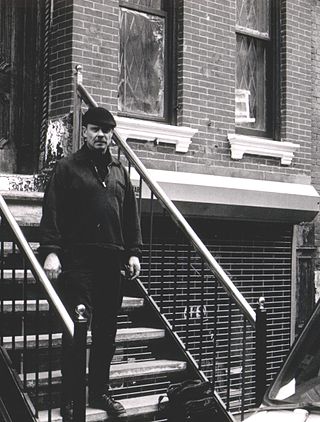
Peter Kowald was a German free jazz and free improvising double bassist and tubist.

Konrad "Conny" Bauer is a German free jazz trombonist. He is the brother of the trombonist Johannes Bauer.
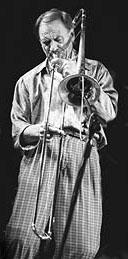
Albert Mangelsdorff was a German jazz trombonist. Working mainly in free jazz, he was an innovator in multiphonics.

Paul Lovens is a German musician. He plays drums, percussion, singing saw, and cymbals. He has performed with the Aardvark Jazz Orchestra and Berlin Contemporary Jazz Orchestra.
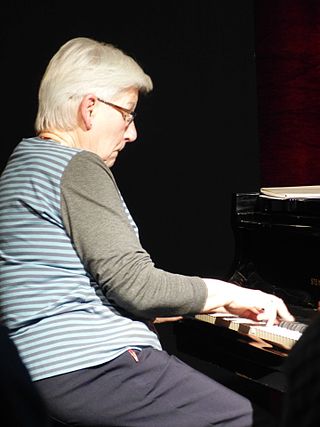
Irène Schweizer is a Swiss jazz and free improvising pianist. She was born in Schaffhausen, Switzerland.

Barry John Guy is an English composer and double bass player. His range of interests encompasses early music, contemporary composition, jazz and improvisation, and he has worked with a wide variety of orchestras in the UK and Europe. He studied at the Guildhall School of Music under Buxton Orr, and later taught there.

Paul William Rutherford was an English free improvising trombonist.
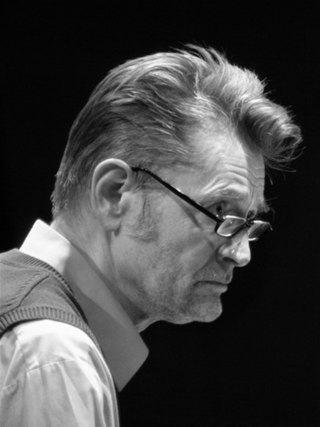
Alexander von Schlippenbach is a German jazz pianist and composer. He came to prominence in the 1960s playing free jazz in a trio with saxophonist Evan Parker and drummer Paul Lovens, and as a member of the Globe Unity Orchestra. Since the 1980s, Von Schlippenbach has explored the work of more traditional jazz composers such as Jelly Roll Morton or Thelonious Monk.

Manfred Schoof is a German jazz trumpeter.
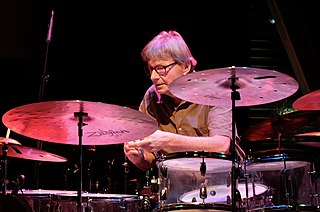
Pierre Courbois is a Dutch jazz drummer, bandleader, and composer.

Gerhard Rochus "Gerd" Dudek was a German jazz tenor and soprano saxophonist, clarinetist and flautist.

Philipp John Paul Wachsmann is an African avant-garde jazz/jazz fusion violinist born in Kampala, Uganda, probably better known for having founded his own group Chamberpot. He has worked with many musicians in the free jazz idiom, including Tony Oxley, Fred van Hove, Barry Guy, Derek Bailey and Paul Rutherford, among many others. Wachsmann is especially known for playing within the electronica idiom.

Buschi Niebergall was a German free jazz musician. His given name was Hans-Helmut, and late in life, his friends called him Johannes.
The Berlin Contemporary Jazz Orchestra is a large German jazz ensemble led by Alexander von Schlippenbach. The orchestra performs orchestral jazz and experimental big band music and has included in its ranks such leading musicians as Misha Mengelberg and Kenny Wheeler. The orchestra, which performs rather infrequently, was founded in 1988 by Schlippenbach and has commissioned works by Carla Bley, Manfred Schoof, and Willem Breuker, among others.

The Deutsche Jazzpreis, also known as the Albert Mangelsdorff-Preis, is, together with the Hans Koller Preis, the most important jazz award in the German-speaking region. Since 1994, it has been awarded every two years by the Union Deutscher Jazzmusiker.

Double Trouble is an album by Barry Guy and the London Jazz Composers' Orchestra. Documenting a large-scale, 46-minute composition by Guy, it was recorded in April 1989 in Zürich, Switzerland, and was released in 1990 by Intakt Records.
References
- 1 2 "Globe Unity Orchestra". European Free Improvisation pages. Retrieved 2008-08-31.
- ↑ Allen, Clifford (2008-02-10). "Globe Unity Orchestra: Globe Unity - 40 Years". All About Jazz. Retrieved 2008-08-31.
- ↑ Litweiler, John (1984). The Freedom Principle: Jazz After 1958. Da Capo. p. 253. ISBN 0-306-80377-1.